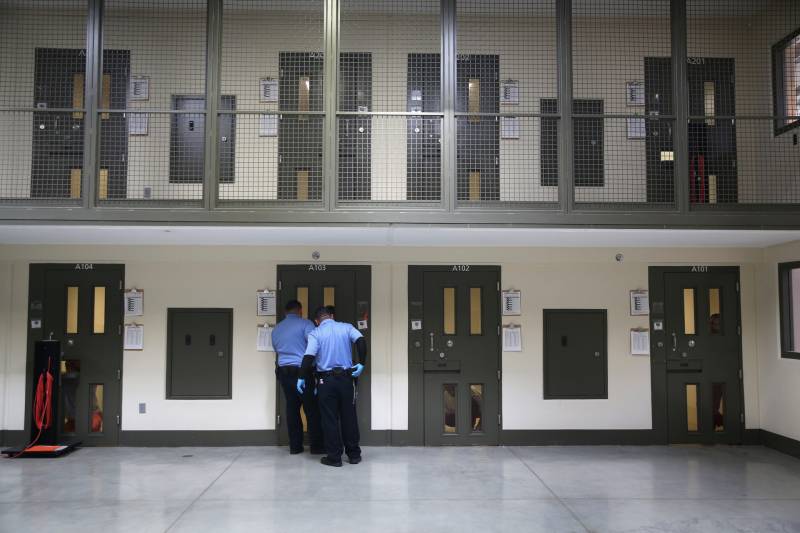A multibillion-dollar private prison company has allegedly maximized profits by coercing immigrant detainees locked up at two of its facilities in California to work for $1 a day, according to a class-action lawsuit filed July 13 in federal court in Fresno.
The legal challenge accuses The GEO Group, a long-time contractor for U.S. Immigration and Customs Enforcement, with “systematic and unlawful wage theft, unjust enrichment and forced labor” at the Mesa Verde ICE Processing Facility in Bakersfield and the nearby Golden State Annex in McFarland.
The plaintiffs — nine ICE detainees who brought the lawsuit on behalf of other immigrants also jailed at the facilities — seek to recover unpaid wages, and for GEO to compensate its detained workforce with at least California’s minimum wage of $15 per hour.
GEO pays the paltry daily rate of $1 to detainees who volunteer to clean dormitories and dining halls, do laundry, assist detainees with disabilities and do other tasks to maintain the facilities, according to the lawsuit.
“We are civilians, we are being employed like this and I believe the right thing to do is give us what California has decided as its minimum wage to employees,” said Pedro Figueroa, 33, who until recently swept floors and scrubbed bathrooms at Mesa Verde for 40 hours per week. “We are fed up with all the injustices here.”

